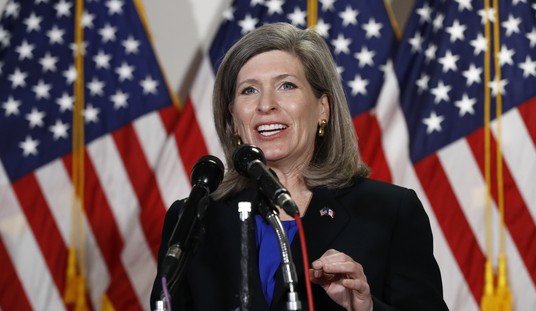Traditional thinking has been that when a company jumps into a political debate, the company experiences shrinking sales and/or a boycott from unhappy consumers. One company that has bucked that trend is Ben and Jerry's Ice Cream.
Ben Cohen and Jerry Greenfield are well known for mixing their progressive political ideology with their popular ice cream. They entered the intersection between retail sales and political views many years ago. They embrace the controversies that have been created.
The problem is that many companies leaped into politics instead of focusing on their customers and delivering a good product or good customer service. Some customers grew tired of the social justice finger-wagging and began to boycott companies and businesses. Whether it was individual efforts or organizing a national boycott, consumers, usually conservatives, let their voices be heard.
The most successful boycott of a popular product that I can remember is the Bud Light boycott. That one cost Anheuser-Busch billions of dollars and millions of customers. The company learned the hard way that thirty-something marketing executives can quickly take a company off a cliff over virtue-signaling. People just want to drink a beer, they don't want a lecture.
The pendulum is starting to swing back, if you ask me. Some businesses have started concentrating less on social and political issues, like Ben and Jerry's does. Investors are urging corporations to stick with what they know.
Ben and Jerry, lifelong friends and business partners, now each 73 years old, say that their style of activism isn't bad for business, it is the opposite.
Ben and Jerry's is owned by Unilever. Ben and Jerry's is at a crossroads now. The ice cream maker "creates a lot of problems" for Unilever.
Most companies aren’t comfortable engaging with social issues because “they don’t want to potentially alienate customers,” says Greenfield. “The irony is for Ben & Jerry’s, that is what makes the company successful.”
Cohen and Greenfield say the brand is now at a crossroads after parent company Unilever ULVR -0.18%decrease; red down-pointing triangle said in March that it would spin off or sell its ice cream division, a move interpreted by some as the culmination of a failed experiment in mixing progressive politics with big business.
While Ben & Jerry’s has for decades worn its heart on its sleeve, some of the brand’s political pronouncements in recent years have angered certain consumers and investors. Cohen believes this is at least partly the reason for its owner’s decision to part ways. For Unilever, “Ben & Jerry’s creates a lot of problems,” he says.
A major corporation like Unilever wants to appeal to all people, though, not just progressives who share Ben and Jerry's politics. Unilever doesn't want to alienate conservatives.
Cohen and Greenfield are Unilever employees. They say the upset is worth it. They shared internal data with the Wall Street Journal that showed their brand logged stronger sales growth than the broader ice cream business of the parent company did in the past three out of five years.
Unilever’s ice cream head, Peter ter Kulve, says that “whilst we don’t always agree” with Ben & Jerry’s, the combination of the company’s leadership, the brand’s board, and founders’ involvement has been successful.
Ben and Jerry think it would be great to have a new owner. “To have a values-aligned owner of Ben & Jerry’s would be a beautiful thing,” says Cohen. But so far there is no indication of such a change.
Of all the multinationals that could have bought Ben & Jerry’s, Unilever—given its historic focus on sustainability—was seen as perhaps the best fit. But in recent years, a marketing strategy aimed at imbuing all of Unilever’s brands with a social or environmental purpose fell flat. Unilever has since narrowed the strategy to a few big brands.
Live and learn, right?
The merging with Unilever has been a bumpy one for Ben and Jerry but it seems to be smoothing out. The two men made millions each when Unilever bought the company for $326M. It expanded the ice cream brand internationally. The ice cream is now sold in 43 countries. It still gives them a bigger platform to push its social mission but not as aggressively as the men would like.
In the meantime, they can make the claim that their brand thrives on pushing political messages with its products. For others, the pendulum is swinging the other way. How long will it last for Ben and Jerry's? That is the question now.







Join the conversation as a VIP Member